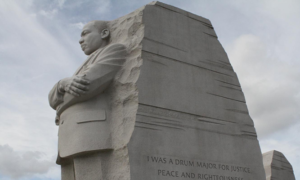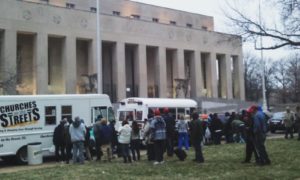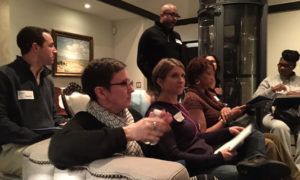Business
Economist Drives Employment Effort in Ferguson
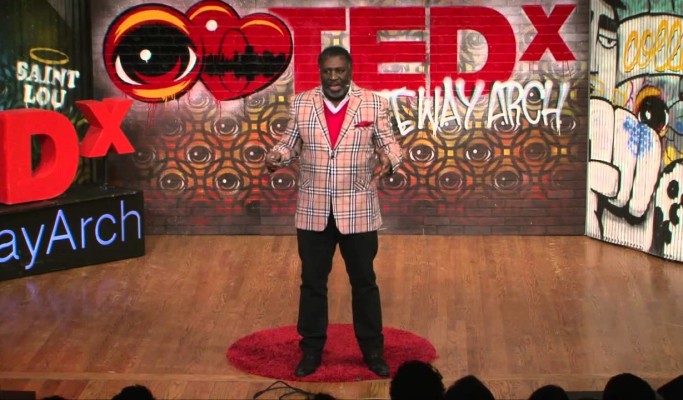
By Dr. Lance McCarthy
A few months ago, I had the pleasure of sharing my economic development research in a TED TALK. The topic was “African Americans and Technology – Empowerment or Exclusion”, and I spoke about how to make diversity a priority as St. Louis becomes a tech hub.
This is clearly not a social issue but an economic one. When you allow all citizens to be a part of the economic landscape via jobs, we all win. When you don’t incentivize economic prosperity for every demographic, we all lose.
Through our research, we’ve found there’s a lot of work to do in St. Louis when it comes to diversity. Studies show that St. Louis is the 5th most segregated city in the United States. The Ferguson unrest last year raised the veil of many discrimination methods in our region. Many groups over the last year have convened to discuss these most delicate issues. Although there are a myriad of problems, we believe job creation is one of the most important solutions.
The opportunity to address Diversity and to close the DIGITAL DIVIDE along with closing the “Delmar/Skinker Divide” through jobs is upon us. We have a company that is rewriting the tech landscape in transportation and promoting minority jobs and minority business ownership growth. That company is Uber.
We may not think about it every day, but access to buses, trains and metros is a crucial link to opportunity and economic mobility. In fact, a recent Harvard study found the single strongest factor in determining economic mobility was commuting time. A lack of transportation options can keep a struggling community treading water. It is bad enough when a neighborhood lacks access to fresh produce; it is even worse when the closest grocery is only accessible by a bus that only shows up occasionally, or not at all.
Uber has launched an urban initiative that will provide flexible earning opportunities to thousands of African Americans across this country. In our community meetings around Ferguson over the last year, we found that people want to work. Some walked to our training sessions and others showed up to our “Hiring Event’ before the doors opened. Yet, transportation is one of the barriers that reduce access to the job market.
Speaking of job opportunities, we need more of them. The labor market is an intriguing mix of good and bad news. The national black unemployment rate was 11.4 percent. That’s about twice the 5.3 percent white unemployment rate, according to the Bureau of Labor Statistics. Ferguson’s unemployment rate of 13 percent, according to the American Community Survey’s 2010-12 estimates, is roughly twice the current national average of 6.2 percent, according to the BLS. Innovation in job creation in St. Louis and Ferguson for African Americans is paramount for our region’s growth.
Considering the need for more economic progress, it caught our eye that Uber is partnering with more than 50,000 drivers in urban communities across America.
Such programs in other cities are UberUP, Uber’s Urban Partnership, an initiative to connect communities with entrepreneurial opportunities furnished by the Uber platform.
Who would deny such a job creation vehicle in the communities that need it most? Who would deny this new innovative technology that provides access to those who have been left out the mainstream? Who would deny new jobs for African Americans in St. Louis were unemployment is so high? Who would deny new wages and taxes that could develop into hundreds of millions of dollars for our region?
Ridesharing has been proven to be successful. In fact, these new services create a virtuous cycle of employment and economic empowerment. Ridesharing companies serve new people and communities that traditional taxis have for years passed over. When these drivers come from the communities they serve, it essentially creates a new market for transportation services. Everybody wins, from the passengers to the drivers to the local economy.
In other cities, riders and drivers are leveraging Uber’s technology to stay connected to their community and the people within it. While Uber expands across the country, economic opportunity and development for cities is expanding with it.
This is in part why Ferguson 1000 is teaming up with the NAACP, SLATE and Uber to recruit drivers from heavily diverse neighborhoods where jobs are often sorely needed such as Ferguson. We have an opportunity to change the direction of our city as it relates to unemployment amongst African Americans, while increasing entrepreneurship coupled with innovation in technology.
When Uber does launch in St. Louis, we can launch tens of thousands of economic opportunities along with it.
Dr. Lance McCarthy is an economist and COO for Ferguson 1000

-

 Black History5 months ago
Black History5 months agoThe untold story of a Black woman who founded an Alabama hospital during Jim Crow
-
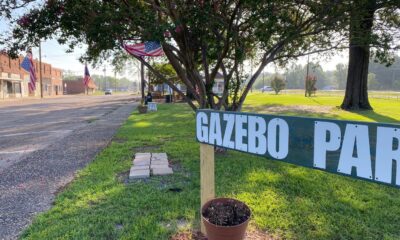
 Featured8 months ago
Featured8 months ago‘No Closure’ In Town Where Five Black Residents Were Either Murdered, Died Suspiciously Or Are Missing
-
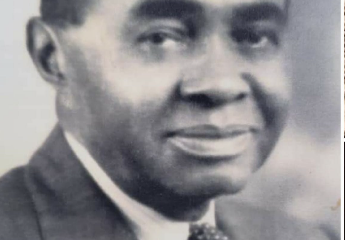
 Black History9 months ago
Black History9 months agoBlack History Lost and Found: New Research Pieces Together the Life of Prominent Texas Surgeon and Activist
-

 Featured9 months ago
Featured9 months agoFounder of “The Folding Chair” Podcast Calls Montgomery’s Brawl ‘Karma’
-
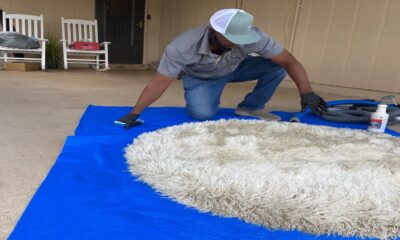
 Featured8 months ago
Featured8 months agoThousands ‘Live Their Dream’ During National Black Business Month
-

 Featured10 months ago
Featured10 months agoJuneteenth And ‘246 Years Of Free Labor’ Are Key To Conversations About Reparations


